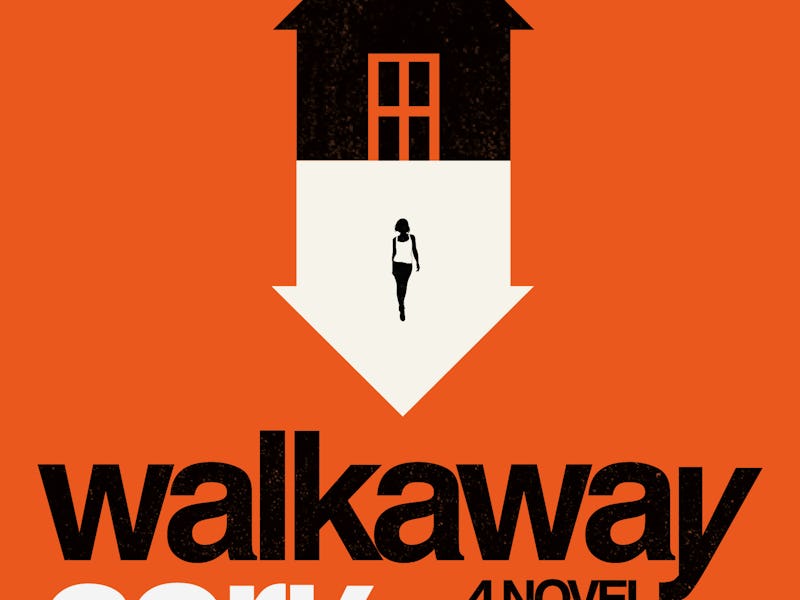Why the Apocalypse Might Not Be as Bad as We Fear
Boing Boing's Cory Doctorow sees a sunnier dystopia in 'Walkaway.'

Cory Doctorow is upbeat about the impending dystopia. “I think that disasters are inevitable,” he tells Inverse. “I don’t think they’re necessarily an indictment of a society.” For the co-editor and co-owner of Boing Boing, and the author of the new novel Walkaway, science fiction is less about entertainment on the future than it is a discussion about the economics of the present.
The lineage of websites like Inverse owe a debt to Doctorow’s Boing Boing, a website where pop culture and tech news commingle. And he is also a prominent activist, focusing on fairer copyright laws and raising awareness to help build a post-scarcity future. Post-scarcity is a theoretical economic model in which the basic needs of all people can be met, but without creating oppressive classism. In essence, post-scarcity is the notion of an achievable utopia.
And though Doctorow’s new novel, Walkaway, (out from Tor Books this week) is a well-paced and often hilarious page-turner, it also serves as blueprint for the beginnings of what a post-scarcity world might look like. The title refers to the idea that several members of society decide to “walk away” from social norms in an effort to build a better world. Two upper-middle class characters — Hubert, Etc. and Seth — team up with a former heiress named Natalie to save the world.
“I wanted to create a new available image of what happens in disaster,” Doctorow says. “The idea that instead of people running to the hills, they run to their neighbors to see how they can help, and then grab their neighbors and go to the next neighbor’s house to see how they can help them.” The future, as Doctorow sees it, isn’t necessarily bleak, even when a far-reaching calamity changes everything. And, through his reading of Rebecca Solnit’s book A Paradise Built in Hell, he was inspired by the strong historical precedent that can potentially save the future humanity.
Doctorow contends that “the way that we perceive the crisis and remember it” often focuses on incidents “in which people turn on each other,” but “when you actually look at the evidence on the ground, what you find is instance after instance of people being fantastically kind and helpful to one another.” Meaning, if science fiction stories are told about optimistic reactions to disaster, maybe the real world could take some cues and react with more sanity than it might if The Hunger Games is the only blueprint.
“A Utopia is not a place where nothing ever goes wrong,” he explains. “It’s a place where when things go wrong, they fail gracefully. So, I decided I would write this optimistic disaster novel. A novel that could replace those stories we’ve been telling ourselves, quite good and compelling stories like The Road, but nevertheless give us this ridiculous, terrible, contra-factual intuition about how our fellow humans behave in times of extremis. You solve today’s problems and tomorrow presents new ones, so what’s really important is the failure modes, not the successes.”
Still, he admits that for a novel of big ideas, he had a different idea for the title; originally he was going to simply call the book Utopia. But friend and fellow science fiction writer Kim Stanley Robinson advised him otherwise. “He read it and said ‘You’re an idiot, it should be called Walkaway,’” Doctorow reveals. “And I was like, ‘Oh my God, you’re totally right.’ That’s why it’s called Walkaway. It’s a story of people walking away together.”
Doctorow doesn’t think editing and writing an internet powerhouse like Boing Boing was mutually exclusive with writing the novel. Instead, he says it was actually part of his process. He feels like his writing online is his own way of creating an archive of things he is interested in writing more about. “Rather than making notes for myself, I make notes for strangers to read,” he says. “Which means that they lodge in the back of my mind. They begin to clump together. It’s like having a supersaturated solution of fragments that eventually nucleate and crystallize. Having all these idea floating around is super useful to me in terms of being able to turn them into stories.”
Without a doubt, Cory Doctorow’s science fiction is message fiction, and the message is that our best hope for the future is found not by walking away from technology and achievement but by working toward a world where all the good things about technology are equitable and sustainable. Doctorow characterizes this by borrowing the battle cry of steampunk pioneer Magpie Killjoy, saying, “Love the machine and hate the factory.”
“People could have all the benefits of mechanization without the downsides of regimented factory,” Doctorow says. “It’s such a beautiful vision, and it captures me in every way, and trying to figure out how to convey that. I think this is my most Utopic project. And the thing that I’ve been at for the longest.”
Walkaway is out now from Tor Books.